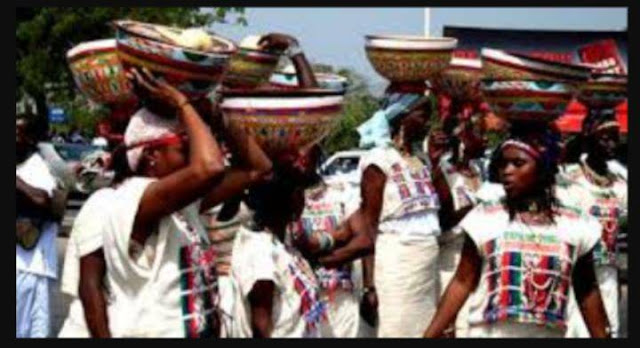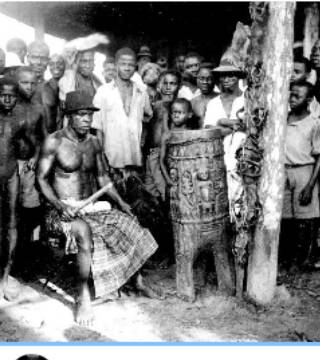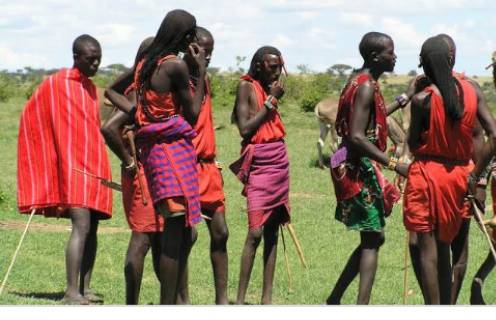The Linguistic Symptom of Death On Igbo Language
Humans are the only species on the planet whose communication system exhibits enormous diversity. As human beings die so do languages die. Language death is when a language is abandoned by its speakers or when a natural disasters wiped off its speakers so that its speakers are no longer living.
Generally, the vanishing rate of most languages of the world is alarming. Of the 6000 living languages in the world, only 600 are classified as “safe,” while others are facing various levels of threat.
According to research, 90% of world languages will be severely endangered by 2100. According to a report from the United Nations Educational, Cultural and Scientific Organization (UNESCO 2003) it predicts that 50% will be lost before the end of the twenty-first century.
In Africa, most indigenous languages are faced with the threat of being subsumed by larger linguistic groups which have left the indigenous languages docile. Several Academic research have predicted that one-third of African languages will die before the first quarter of this century as a result of decline in their domain of use.
Language death occurs when a language ceases to be used by its community of speakers for any purpose. When there are no native speakers of the language, such language is at the brink of extinction. Language endangerment means when a language is gradually losing its see speakers, its use or the language speakers have been linguistically influenced by another language. If a language is endangered for long, language death is the end point if there is no linguistic intervention.
There are five levels of language endangerment:
(i) Potentially endangered. This occurs when children from a linguistic group start preferring the dominant language. The language consequently begins to lose child speakers.
(ii) Endangered. A language is endangered when the youngest speakers are young adults and there are no or very few child speakers.
(iii) Seriously endangered. The youngest speakers are middle-aged or past middle age.
(iv) Moribund or terminally endangered. There are only few speakers left.
(v) Extinct/dead. There are no speakers of the language left at all.
In Nigeria, there are about 500 indigenous languages with several strong ethnic groups. Each ethnic tried to fight for its Language. When you take Language away from people, you have taken away their lives. For this reason alone, they do anything to hold their language tight.
However, out of these 500 languages, 27 languages are under language treat. These 27 languages are at Moribund or terminally endangered stage. After this stage, these languages will die.
Eight strong indigenous languages have died in the history of Nigeria. According to a research, the below 8 languages are dead.
1. Ajawa
Ajawa is an extinct Afro-Asiatic language formerly spoken in Bauchi State, Nigeria. Ajawa became extinct between 1920 and 1940 as speakers switched to Hausa.
2. Kpati
kpati is an extinct Grassfields language formerly spoken in the Wukari and Takum LGAs of Taraba State, Nigeria. It was first reported as extinct by Grimes, Barbara (1984). Kpati was classified as a Ngemba language by Fivas – Scott (1977).
3. Auyokawa
Auyokawa is an extinct Afro-Asiatic language formerly spoken in Auyo LGA, Jigawa State, Nigeria
4. Basa-Gumna
Basa-Gumna is an extinct Kainji language of Nigeria. It was spoken in Chanchaga, Niger state, and Nasarawa, near the Basa homeland. Speakers have shifted to Hausa. Gumna is situated about 10 kilometers to the west of the Tegina-Zungeru road. Around 1963, Basa-Gumna speakers moved to the road and currently live in Yakila town, where only two semi-speakers were found in 1986. They also live two nearby hamlets, both called Basa, which are located west of the .
5. Gamo (Buta) and Nin
Gamo (Buta) and Ningi are an apparently extinct Kainji dialect cluster of Nigeria.
6. Kubi (also known as Kuba, Kubawa)
Kubi (also known as Kuba, Kubawa) is an extincted Afro-Asiatic language formerly spoken in Bauchi State, Nigeria. Members of the ethnic group now speak Hausa.
7. Mawa
Mawa is an extincted and unattested language of Nigeria. It was apparently different from a language of Chad also known as Mawa, and so is unclassified.
8. Teshenawa
Teshenawa is an extincted Afro-Asiatic language formerly spoken in Teshena town of Kafin Hausa LGA, Jigawa State, Nigeria.
Igbo language is one of the languages predicted by UNISCO to die soon because of limited speakers. Another reason is that most of the varieties of Igbo language have now been abandoned which has a negative impact on the main language.
Igbo language is already endangered but Yoruba and Hausa languages may experience language endangerment if these factors continue:
1. Language shift: it has been noticed that Igbo and Yoruba speakers now shift to Hausa language. Yoruba speakers tend to bring up their children with English language. According to research, 60 per cent of children born to Northern part of Nigeria don't know yoruba Alphabet. In another case 90% of them cannot pronounce letter 'kp' and 'gb'. Hausa language doesn't have these letters so children born there do substitution. Parents always consider their local language as being a bad influence on a child's educational growth thereby shifting to English.
2. Educational reasons: it is also observed in Nigerian educational system that indigenous languages are not well taught in school. The worse part of it is that if an Igbo child was born in Yoruba land, he will be forced to learn Yoruba language according to the laid down curriculum. If 3 languages are nationalised as the national languages, all of them should be taught in any State of the country. In this way, children will not loss their language.
3. English dominance: Nigerian lawed English as the official language of the country. It is no doubt that it units the country who has a linguistic diversity. In fact, it helped to solve the issue of which indigenous language should be chosen as the official language. To avoid this linguistic clash, the choice of English is the best. However, there must be a balance. It is observed that these languages do not have much recognition as they are not used for public purposes as expected. There should be a larger portion which these languages should serve in the country. Unfortunately, the speakers of these languages have been mesmerized.
4. Political, economic or cultural Reasons: Speakers of a minority language may, for example, decide that it is better for their children’s future to teach them a language that is tied to economic success. For example, the vast majority of second-generation immigrants to the United States do not speak their parents’ languages fluently. It is economically and culturally more beneficial to speak English.
If these four linguistic otioses persist, Yoruba and Hausa languages may be endangered soon and grossly, Igbo Language may be attrited.
There is what is called gradual language death. This is what igbo language is facing but if this generation can intervene, the language may be considered to be safe. Yoruba and Hausa speakers should avoid these factors. Yoruba and Hausa languages are obviously affected too but scholars are trying to preserve the languages. But the speakers must be part of the contest.
What are you doing to save your language?
What value do you place on your language?
Do your children speak your native Language?
Do you know that your language form a larger percentage of your thinking?
Language is the conveyor of culture.
Don't you think that our dying culture gives rise to abnormal societies we have today?
What language do you speak? Are you proud of it?
Igbo speakers should note that Igbo language is the most predicted endangered language out of the three indigenous languages. Igbo local speakers have shifted to main Asusu Igbo while the language itself doesn't have enough literature (no much books written on Igbo language? It is not about the number of speakers, it is about the number of speakers who know the correct usage and speak correctly.
Share with your friends to help save your language.










Nice piece, I it really enlighten my knowledge about the Igbo tribe of Nigeria
ReplyDeleteThanks so much
DeleteThis is a fascinating research work.
ReplyDeleteThanks so much sir
ReplyDelete